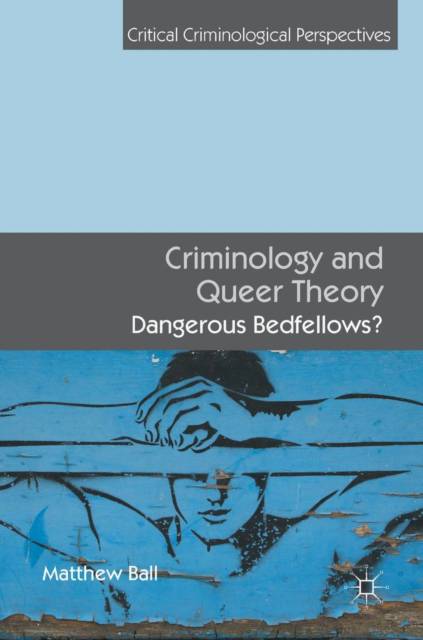
Door een staking bij bpost kan je online bestelling op dit moment iets langer onderweg zijn dan voorzien. Dringend iets nodig? Onze winkels ontvangen jou met open armen!
- Afhalen na 1 uur in een winkel met voorraad
- Gratis thuislevering in België vanaf € 30
- Ruim aanbod met 7 miljoen producten
Door een staking bij bpost kan je online bestelling op dit moment iets langer onderweg zijn dan voorzien. Dringend iets nodig? Onze winkels ontvangen jou met open armen!
- Afhalen na 1 uur in een winkel met voorraad
- Gratis thuislevering in België vanaf € 30
- Ruim aanbod met 7 miljoen producten
Zoeken
Omschrijving
This book offers critical reflections on the intersections between criminology and queer scholarship, and charts future directions for this field. Since their development over twenty-five years ago, queer scholarship and politics have been hotly contested fields, equally embraced and dismissed. Amid calls for criminology and criminal justice institutions to respond more effectively to the injustices faced by LGBTIQ people, criminologists have recently developed a Queer Criminology and turned to queer scholarship in the process.
Through a sweeping analysis of critical criminologies, as well as issues as varied as shame and utopian thought, Matthew Ball points to the many opportunities for criminology to engage further with the more politically disruptive strands of queer scholarship. His analysis highlights that criminology and queer theory are 'dangerous bedfellows', and that navigating the tension between them is central to confronting thesocial and criminal injustices experienced by LGBTIQ communities. This book will be of particular interest for scholars of criminology, criminal justice, LGBTIQ studies, gender studies and critical theory.
Through a sweeping analysis of critical criminologies, as well as issues as varied as shame and utopian thought, Matthew Ball points to the many opportunities for criminology to engage further with the more politically disruptive strands of queer scholarship. His analysis highlights that criminology and queer theory are 'dangerous bedfellows', and that navigating the tension between them is central to confronting thesocial and criminal injustices experienced by LGBTIQ communities. This book will be of particular interest for scholars of criminology, criminal justice, LGBTIQ studies, gender studies and critical theory.
Specificaties
Betrokkenen
- Auteur(s):
- Uitgeverij:
Inhoud
- Aantal bladzijden:
- 262
- Taal:
- Engels
- Reeks:
Eigenschappen
- Productcode (EAN):
- 9781137453273
- Verschijningsdatum:
- 29/07/2016
- Uitvoering:
- Hardcover
- Formaat:
- Genaaid
- Afmetingen:
- 158 mm x 222 mm
- Gewicht:
- 462 g

Alleen bij Standaard Boekhandel
+ 427 punten op je klantenkaart van Standaard Boekhandel
Beoordelingen
We publiceren alleen reviews die voldoen aan de voorwaarden voor reviews. Bekijk onze voorwaarden voor reviews.











